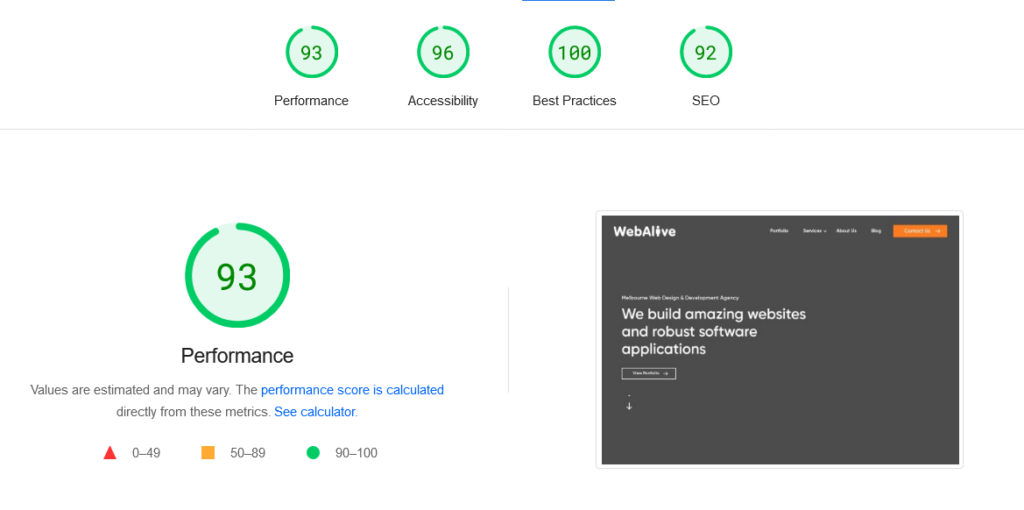
What Is Technical SEO? Importance and Best Practices
With the relentless competition prevalent in today’s digital world, if you are into digital marketing and want online success, a powerful SEO strategy is indispensable.
If we break down search engine optimisation into various buckets, technical SEO is one of the most fundamental aspects of SEO. Often people tempt to ignore this component of SEO completely while it holds high importance. And the importance is growing each year.
Let’s get to know more about the technical side of SEO.
Technical SEO Defined
In a nutshell, technical SEO is all about improving the technical aspects to improve the crawling, indexing and performance of a website to get higher rankings on search engines.
Websites usually have two sides, the front end that encompasses the visible elements like images, videos or text, and the back end that involves codes and scripts that demand the expertise of professionals to intricate. Technical SEO deals with the backend. It refers to the behind-the-scene elements like site architecture, navigation, mobile optimisation, page speed and more.
It entails refining the underlying structure, optimising loading speeds, and implementing robust security measures to prepare your website for search engines to identify it. The goal is to ensure that search engines can crawl, index and render your web pages effortlessly.
Importance of technical SEO for your website
Taking on technical SEO can help your website in tons of ways; here are some:
Maximise reach and visibility across all channels
An essential benefit of technical SEO is that it widens reach and visibility. Implementing technical SEO, you can ensure that your website is indexed rightly by generating and submitting a sitemap, fine-tuning your robots.txt file, and incorporating canonical tags.
Also, optimising the website structure, implementing structured data and schema markup and minimising duplicate content will help you improve your website’s crawl ability and relevancy, making it easier for search engines to discover it, index it, and display it. And this stands to reason that the increase in reach will help you bring new leads that can turn into new customers.
Improve search engine ranking
As technical SEO helps search engines to understand your content easily, it comes with no doubt that you will get a much better chance to appear higher on search engine result pages, up and including “position zero”. And the higher ranking eventually leads to more traffic, leads and conversions for your business. After all, users hardly click on the second page of the search results.
The organised web structure is what enables search engines to understand the nature of your website and determine where and when to show it among the results.
Locate any issues and gaps
Technical SEO will help you identify and resolve any roadblocks that might put a dent in your search engine’s rankings and prevent users from navigating through the site. By conducting regular technical audits, you can eliminate any sort of errors, such as broken links, missing image alt tags, duplicate contents, slow load time or page not found errors. All of these issues can negatively affect your website’s crawl ability and indexability. And identifying them before Google or others find it turns the task of fixing them much easier.
Improves user experience
Page speed
Page speed is considered a significant ranking factor by Google. Hence a fast-loading website is more likely to get a better search ranking, while a website with slow page speed results in higher bounce rates and lower engagement. Technical SEO help improves page speed by addressing factors such as the size of images, the use of plugins and widgets or website caching.

Mobile optimisation
By implementing tech SEO, you can make your website mobile-friendly through the use of responsive design, minimising the number of pop-ups or ads or maintaining images and video optimisation for mobile.
Easy navigation
Navigation menus need to be clear, easy to use and organised in a logical and intuitive way. And with clear labels, logical organisations and intuitive menus, technical SEO make your site easy for users to navigate and find the information they need. This will result in a positive user experience.
Improve website security
Technical SEO can help to increase website security. Technical SEO uses secure socket lockets (SSL) in order to protect websites from potential hacking. It makes sure your site is encrypted with HTTPS. This also stops unwanted pop-up ads from appearing on the pages.

Example of using an SSL certificate
As every visitor wants to feel safe and secure when browsing a website, search engines prioritise secured websites in terms of ranking. So a secure website not just protects a visitor’s information but also ensures that search engines rank your site higher.
Simple website structure
Technical SEO is crucial in optimising a website’s structure, including URL structure and internal linking. Make sure your URLs are clear, concise and descriptive and accurately reflect the content on the page. Also, since you use descriptive anchor text for internal links pointing to relevant content, this will make it easier for search engines to crawl and index your content. This will positively impact your rankings as it helps search engines understand the hierarchy of your site.
Some of the technical SEO best practices to consider
Technical SEO covers a wide range of SEO topics. The list below includes some of the best practices that you can consider to carry out your own technical SEO audit.
Ensure your website is mobile friendly
This is one of the most basic technical SEO tips. Your mobile website should include the same context as your desktop site. Make sure it loads faster, and try to avoid using pop-ups.
Create and optimise XML sitemaps
XML sitemap optimisation is one of the most important elements of technical SEO. If you are a WordPress user, you can easily create an XML sitemap using free plugins. The optimisation process is also simple, only including the sitemap to the pages that are important for your website and that have original content.
Optimise internal links
In order to optimise your site’s internal linking, you can do it by using descriptive keywords in anchor text or transferring link value to new blog posts by linking it from your site’s top-ranking pages.
Use structured data
Structured data, otherwise known as “schema markup”, is highly used by Google in search results. So, make sure to add structured data to your homepage, posts and other pages, as it is a crucial asset to have on your website.

Example of Structured data
Fix errors by a site audit
By running a routine technical SEO audit, you need to fix your on-page SEO issues. Use tools such as Semrush, Moz or Ahrefs to scan your website for errors, warnings or issues and improve the overall technical health of your website.
SSL and HTTPS
Your website should have SSL installed so that your website can be accessed using HTTPS, not HTTP. This will make sure that any information transferred between your website and server is encrypted, be it username, password or bank details.
Not just these, technical SEO consists of a number of checks and settings. It is a vast topic. But it is the technical SEO that can make a difference in ranking high in SERPs. Once you get your technical SEO right, it will result in improving your search engine ranking while driving more targeted traffic and increasing conversions.
You read a lot. We like that
Want to take your online business to the next level? Get the tips and insights that matter.

